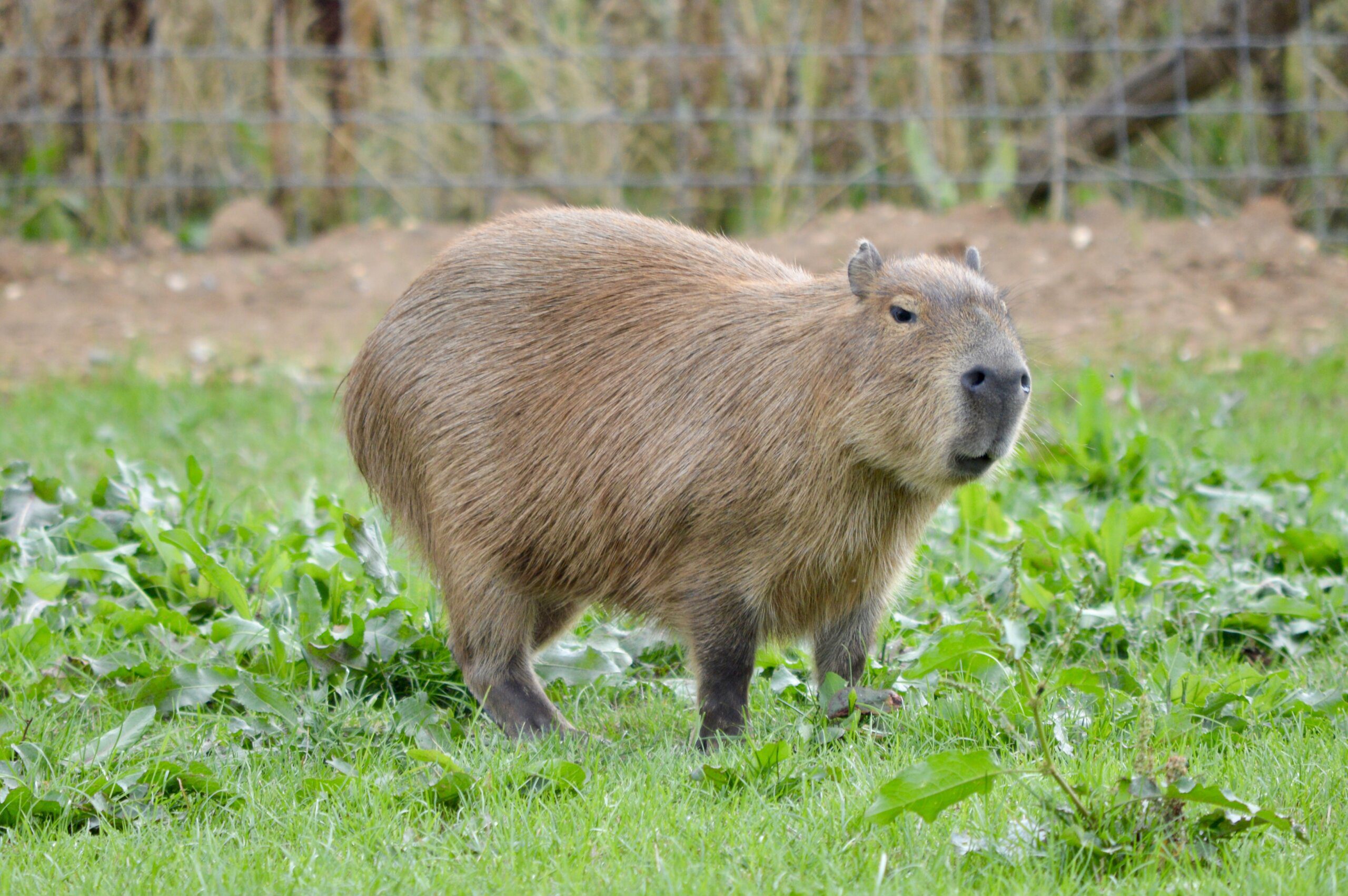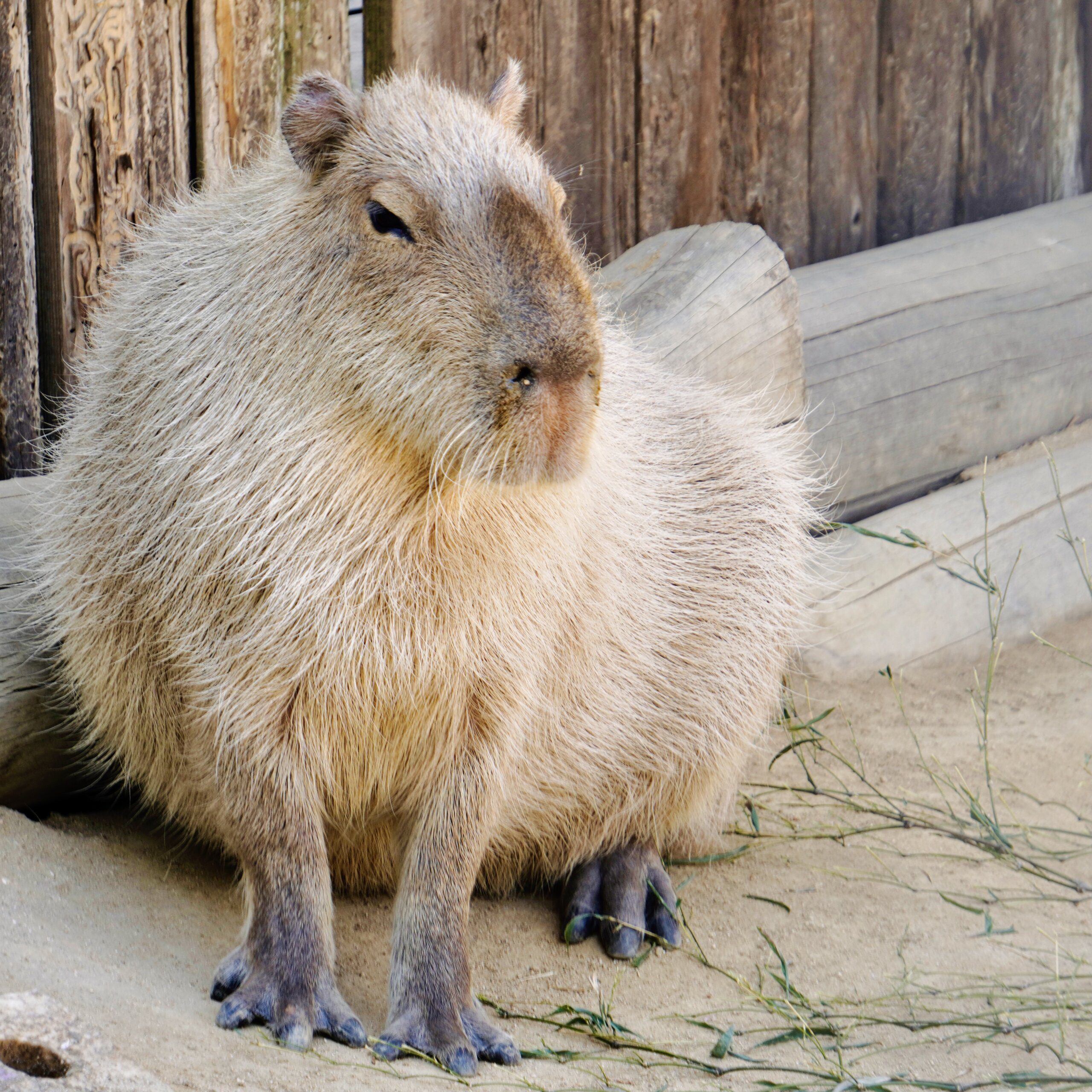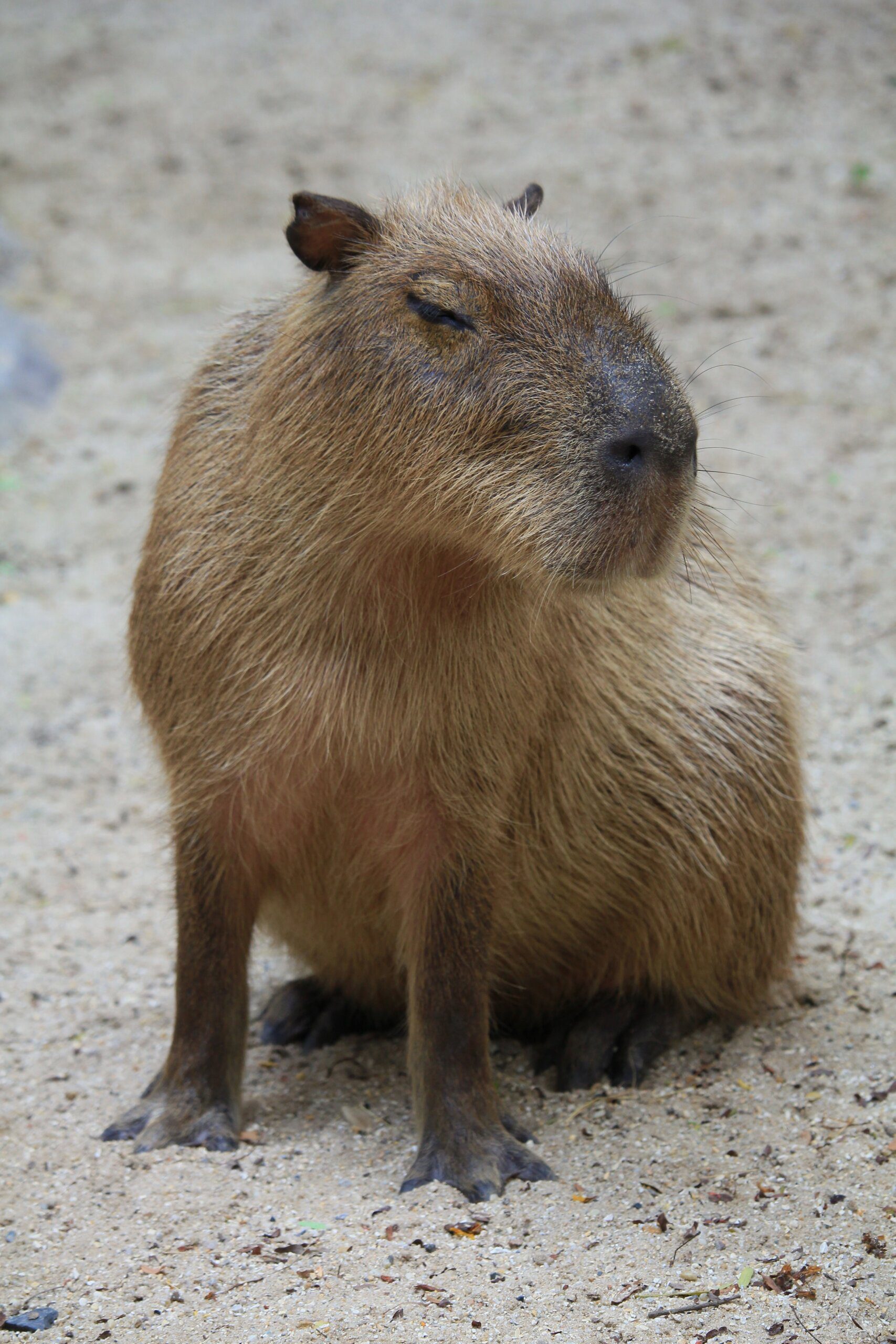If you’ve ever wondered whether owning a capybara is legal in Scotland, we’ve got the answer for you. Scotland, known for its stunning landscapes and unique wildlife, has specific regulations when it comes to exotic pets. So, let’s find out if these charming, large rodents are allowed companions in the land of tartans and bagpipes.

Overview of Capybaras
Capybaras are fascinating and unique creatures that captivate the imaginations of many. They are the largest rodents in the world and possess a distinctive appearance with their barrel-shaped bodies, short legs, and webbed feet. These captivating animals are native to South America and are well-adapted to living in semi-aquatic environments, thanks to their ability to swim effortlessly and even dive underwater.
Physical characteristics
One of the most notable physical characteristics of capybaras is their impressive size. On average, they can weigh anywhere between 77 to 146 pounds and measure around 39 to 51 inches in length. Their dense, coarse fur ranges in color from shades of brown and gray, allowing them to blend seamlessly into their natural surroundings. Capybaras also possess small ears and eyes, as well as a set of sharp incisors, which they use to graze on vegetation.
Habitat and natural range
Capybaras are native to South America, where they inhabit a vast range of habitats, including wetlands, grassy savannahs, and dense forests. They are particularly fond of areas near bodies of water such as rivers, marshes, and lakes, as these provide them with opportunities for swimming and cooling off under the sun. Capybaras are highly adaptable and can be found in various South American countries, including Brazil, Venezuela, and Argentina.

Behavior and social structure
Capybaras are highly social animals and thrive in groups known as herds or colonies. They are often seen interacting with one another through mutual grooming, vocalizations, and even playful splashing in the water. These gentle giants have a docile and friendly nature, making them excellent companions for both humans and other animals. They have even been known to form unique relationships with other species, including birds and turtles.
Exotic Pets Regulations in Scotland
Scotland, like many countries, has regulations in place to govern the ownership of exotic pets. These regulations are designed to ensure the welfare and safety of both the animals and the owners.
The Dangerous Wild Animals Act 1976
Under the Dangerous Wild Animals Act 1976, certain species of animals, including capybaras, are classified as “dangerous wild animals.” This classification means that owning such animals requires a license from the local authority. The act aims to prevent potential risks and promote responsible ownership of exotic pets.
The Control of Exotic Pets Act 2019
The Control of Exotic Pets Act 2019 further strengthens the regulations regarding the ownership of exotic pets in Scotland. The act introduces stricter requirements for obtaining licenses and emphasizes the need for appropriate care, housing, and welfare provisions for these animals.
Local Council Bylaws
In addition to the national legislation, local council bylaws may also influence the regulations surrounding exotic pet ownership. It is crucial for potential capybara owners in Scotland to thoroughly research and understand the specific regulations in their local area to ensure compliance with all applicable laws.
Specifics about Owning Capybaras in Scotland
Categorization under current legislation
In Scotland, capybaras fall under the category of “dangerous wild animals” as defined by the Dangerous Wild Animals Act 1976. This means that owning a capybara requires obtaining a license from the local authority. The classification as a dangerous wild animal is not intended to imply that capybaras are inherently aggressive or dangerous, but rather acknowledges their unique needs and potential interactions with the environment.
Licensing requirements
To obtain a license for owning a capybara in Scotland, potential owners must meet strict criteria set by the local authority. These criteria typically include demonstrating appropriate knowledge and understanding of the species, providing suitable housing and enrichment facilities, and having contingency plans for emergency situations.
Animal welfare considerations
Owning a capybara comes with significant responsibilities when it comes to ensuring the welfare and wellbeing of these animals. Capybaras require ample space to roam and explore, as well as access to water for swimming and cooling off. Providing a suitable diet that mimics their natural grazing habits is also crucial for their health. Additionally, capybaras are highly social animals and should not be kept alone, as companionship is vital for their emotional wellbeing.

Benefits of Owning a Capybara
Emotional support and companionship
One of the primary benefits of owning a capybara is the emotional support and companionship they can provide. Capybaras have a gentle and affectionate nature, making them wonderful pets for those seeking a loyal and loving companion. Their nurturing behavior and social nature can bring joy and comfort to their owners, especially those who may be experiencing loneliness or emotional challenges.
Educational opportunities
Owning a capybara can offer valuable educational opportunities, particularly for children. Learning about their natural habitats, diet, and behavior can foster a deep appreciation for wildlife and the importance of conservation efforts. Owning a capybara can also provide an opportunity to educate others about these extraordinary creatures and dispel any misconceptions surrounding their care and well-being.
Therapeutic benefits
Capybaras have been known to provide therapeutic benefits to their owners. Their calm and gentle demeanor can have a calming effect on individuals, reducing stress and anxiety. Interacting with capybaras, such as through grooming or simply observing their behavior, can promote a sense of relaxation and overall well-being. This therapeutic aspect can be particularly valuable for individuals with certain physical or mental health conditions.
Drawbacks of Owning a Capybara
Space and infrastructure requirements
Owning a capybara necessitates a significant amount of space and proper infrastructure. Capybaras require access to a large outdoor area where they can graze, swim, and engage in natural behaviors. This means a large, secure enclosure with appropriate fencing and access to fresh water at all times. Additionally, the enclosure must be free from potential hazards and provide shelter from extreme temperatures.
High costs involved
The cost of owning a capybara can be substantial. Alongside the initial purchase price of the animal itself, potential owners must consider ongoing expenses such as food, veterinary care, and maintaining the necessary infrastructure. Capybaras have specific dietary requirements, often requiring a varied diet of hay, grass, and certain vegetables. Veterinary care, including regular check-ups and vaccinations, is crucial to ensure their health and well-being.
Legal responsibilities
Owning a capybara in Scotland comes with legal responsibilities that must be carefully considered. Failure to obtain the appropriate license or follow the necessary regulations can result in legal consequences and penalties. It is the owner’s responsibility to abide by all local and national legislation pertaining to the ownership of capybaras. Additionally, owners must consider the ethical implications of keeping these animals in captivity and ensure they are providing the highest standard of care.
Alternative Options to Capybaras
Similar exotic pets legally allowed in Scotland
For those who are interested in owning an exotic pet but may not be able to meet the requirements for owning a capybara, there are alternative options to consider. Some other exotic pets that are legally allowed in Scotland include certain species of reptiles (such as bearded dragons and leopard geckos), some bird species (like cockatiels and budgerigars), and small mammals (such as guinea pigs and rabbits). It is essential to research the specific regulations surrounding each species before considering ownership.
Domesticated pet alternatives
If the desire for a unique and engaging pet remains strong, exploring domesticated pet options might be a viable alternative. There are various domesticated dog and cat breeds that can offer companionship and emotional support without the legal complexities associated with owning an exotic pet. In addition, domesticated pets often come with a wealth of resources and support networks to ensure their care and well-being.
Responsible pet adoption
For individuals who wish to experience the joys of pet ownership without the challenges and legal considerations of owning an exotic animal, adopting a rescue or shelter animal is an excellent option. There are numerous dogs, cats, and small mammals available for adoption in Scotland. By adopting a pet, you not only provide a loving home for an animal in need but also contribute to the reduction of overpopulation and the demand for exotic pets.
Tips for Potential Capybara Owners
Researching capybara care
Before considering ownership, it is crucial to thoroughly research capybara care. Understanding their dietary needs, social behavior, and habitat requirements is essential for providing a suitable environment. Consulting reputable sources, such as veterinary experts and capybara-specific organizations, can offer valuable insights into their specific needs and potential challenges.
Finding a reputable capybara breeder
If you decide to pursue ownership, finding a reputable capybara breeder who adheres to ethical breeding practices is vital. A responsible breeder will prioritize the welfare of the animals and be willing to answer any questions or concerns you may have. Visiting the breeding facility in person can help assess the conditions in which the capybaras are kept and the level of care provided.
Preparing a suitable living environment
Creating a suitable living environment for a capybara requires careful planning and consideration. Providing a spacious outdoor enclosure with ample grazing and swimming areas is crucial. The enclosure should be secure, free from potential hazards, and offer protection from extreme weather conditions. Additionally, incorporating enrichment activities, such as log structures and hiding spots, can help stimulate their natural behaviors and promote their overall well-being.
Risks of Illegally Owning a Capybara
Legal consequences and penalties
Owning a capybara without the necessary license and documentation can lead to significant legal consequences. Potential penalties can include fines, confiscation of the animal, and even criminal charges. It is essential to adhere to all applicable regulations and licensing requirements to avoid these potential risks.
Potential harm to the capybara
Illegally owning a capybara can also result in potential harm to the animal itself. Without proper knowledge and resources, it may be challenging to provide the necessary care and environment for the capybara’s well-being. The capybara may suffer from inadequate nutrition, lack of socialization, and suboptimal living conditions. By ensuring legal ownership, owners can better safeguard the welfare of the capybara.
Ethical considerations
Owning a capybara is not solely a legal matter but also an ethical one. It is essential to consider both the immediate welfare of the individual capybara and the conservation implications of keeping these animals in captivity. Where possible, supporting efforts to protect capybaras and their natural habitats through education, conservation initiatives, and responsible ecotourism may be a more ethical way to appreciate and engage with these incredible creatures.
Public Perception of Owning Capybaras
Media portrayal and popular culture influence
The public perception of owning capybaras can be influenced by media portrayal and popular culture. Social media platforms and viral videos featuring cute and charismatic capybaras have garnered significant attention, often portraying them as ideal pets. However, it is crucial to remember that these representations may not showcase the full reality of owning a capybara. Responsible ownership requires thorough research and a genuine commitment to meeting their unique needs.
Opinions from animal rights organizations
Animal rights organizations often advocate against the ownership of capybaras and other exotic pets. They argue that these animals have specific requirements that are difficult to fulfill in domestic settings, resulting in a compromised quality of life. These organizations emphasize the importance of prioritizing the welfare of animals and advocate for stricter regulations to protect the wellbeing of both exotic pets and their owners.
Public awareness and education
As the popularity of capybaras as exotic pets grows, there is an increasing need for public awareness and education. Promoting accurate information about capybara care and the legal obligations of ownership can help potential owners make informed decisions. Educational initiatives, such as workshops, public lectures, and online resources, can provide guidance and raise awareness about the considerations and responsibilities associated with owning a capybara.
Conclusion
Understanding the legalities of owning a capybara in Scotland is essential for potential owners. While the prospect of having a capybara as a pet may be appealing, it is crucial to weigh the pros and cons carefully. From the physical characteristics and habitat requirements of capybaras to the regulations surrounding their ownership, there is much to consider. The benefits of owning a capybara, such as emotional support and educational opportunities, must be balanced against the drawbacks, including space requirements and legal responsibilities. Exploring alternative pet options and responsible adoption are also worth considering. By considering all aspects and making an informed decision, potential capybara owners can provide the best possible care and consider the welfare of these remarkable creatures.



